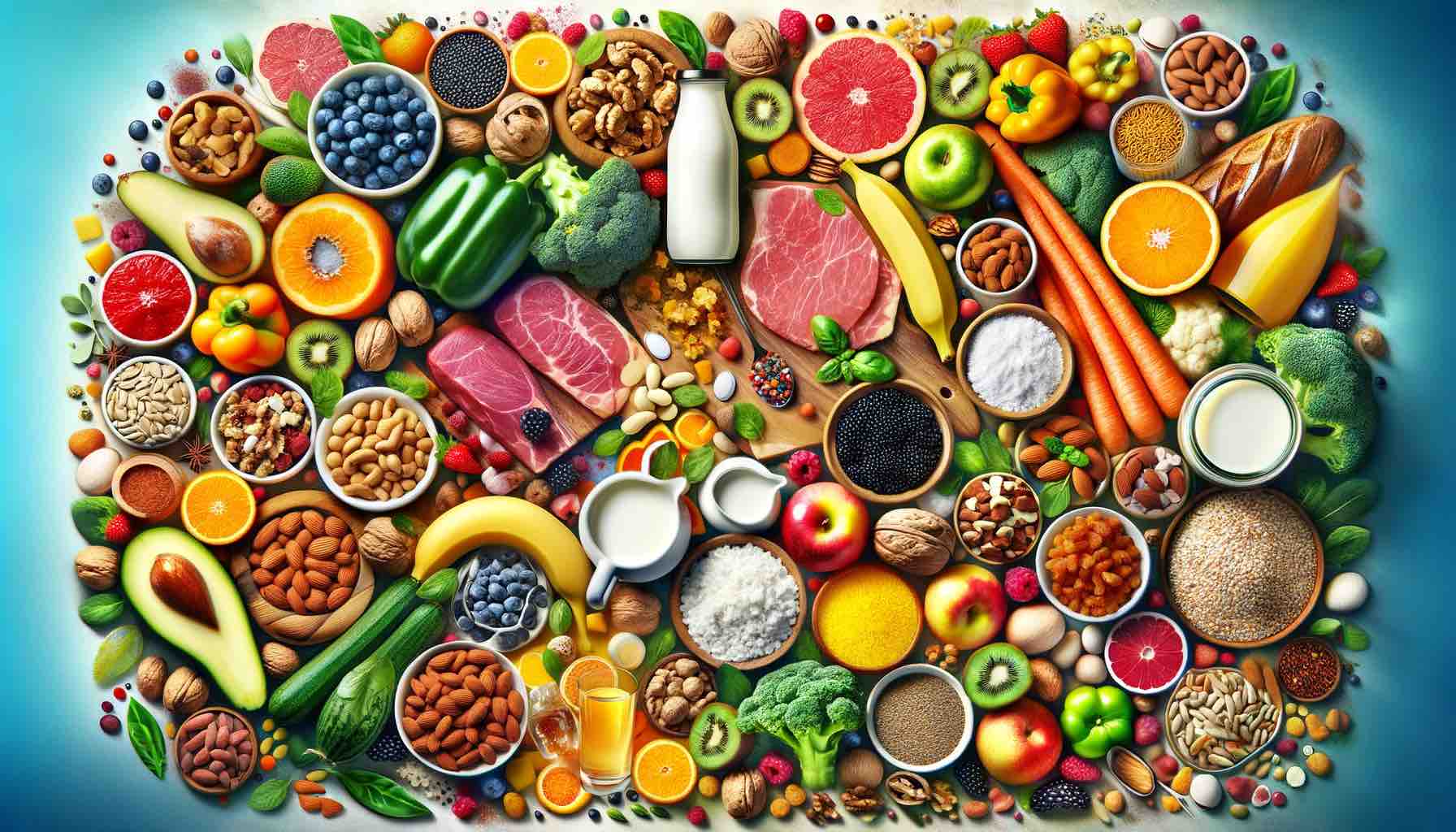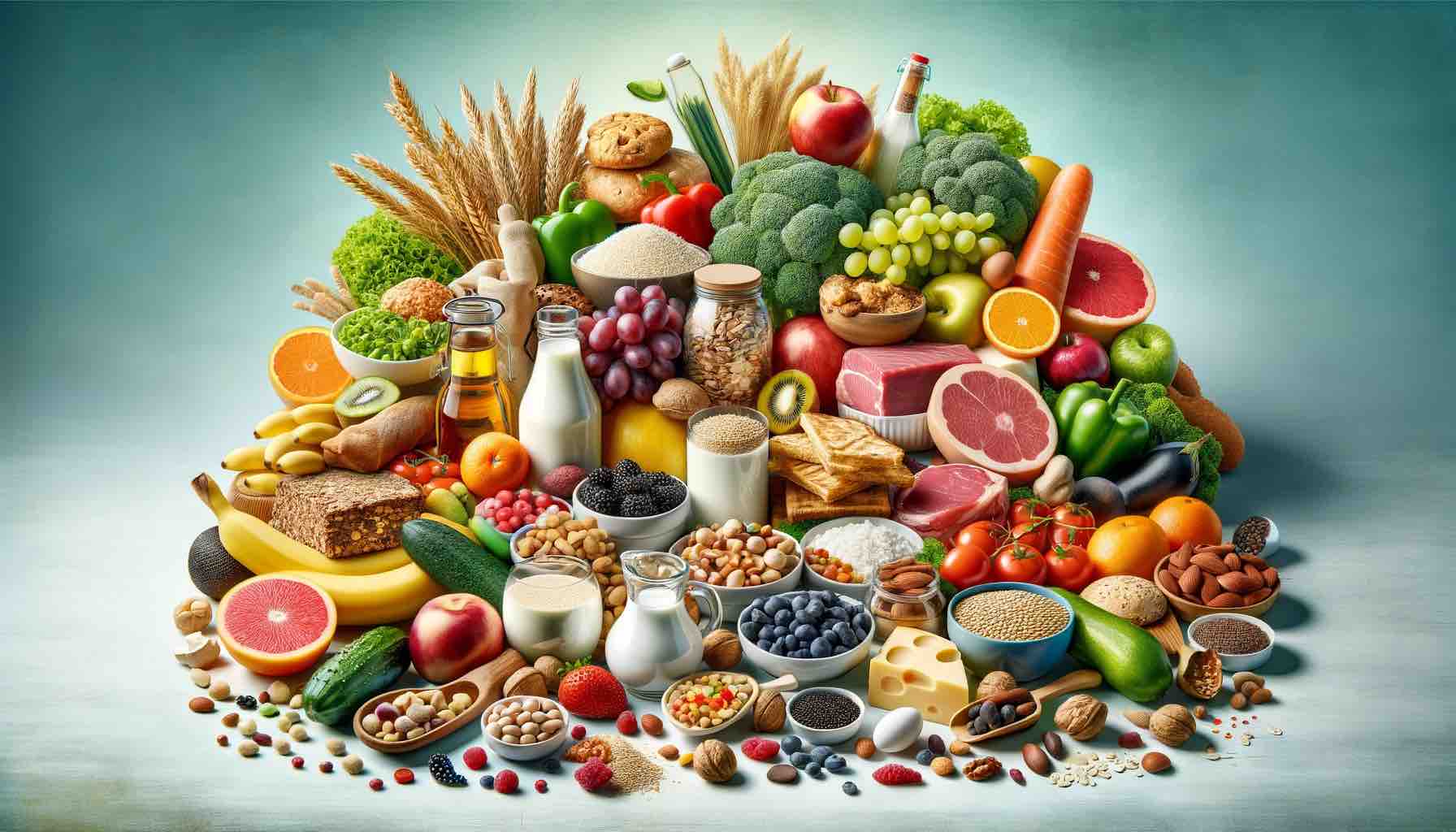
Introduction
Sweet potatoes have long been celebrated as a nutritional powerhouse, packed with vitamins, fiber, and essential minerals. They’re a staple in many healthy diets, revered for their versatility in the kitchen and their myriad health benefits. However, for those following a ketogenic diet, where carbohydrates are drastically reduced to achieve a state of ketosis, the place of sweet potatoes on the plate becomes a subject of debate.
The ketogenic diet, known for its stringent carb restrictions, often leaves followers wondering about the compatibility of certain foods with their low-carb regime. Sweet potatoes, with their naturally high carbohydrate content, sit in this gray area. Are they a keto-friendly option, or do they contain too many carbs to fit within the strict macronutrient ratios of the diet?
In this post, we delve deep into the world of sweet potatoes and their place in a ketogenic lifestyle. We’ll explore the nutritional profile of sweet potatoes, dissect their carb content, and examine how they might (or might not) align with the principles of a keto diet. Additionally, we’ll provide insights and alternatives for those who love sweet potatoes but are committed to maintaining ketosis. So, let’s unravel the mystery: Are sweet potatoes keto-friendly, or are they a carb-heavy misfit in the low-carb universe of keto?
Sweet Potatoes and Keto: A Nutritional Conundrum
The ketogenic diet is characterized by its low carbohydrate, moderate protein, and high fat intake, aimed at pushing the body into a state of ketosis, where fat, rather than carbohydrates, is burned for energy. This dietary shift raises important questions about the inclusion of certain foods, especially those like sweet potatoes, known for their carb content.
Sweet potatoes are a beloved root vegetable, lauded for their taste, versatility, and health benefits. Rich in vitamins A and C, fiber, potassium, and antioxidants, they are undoubtedly a nutritious choice in a general diet. However, the primary concern for keto adherents is their carbohydrate content. With about 17 grams of net carbs per 100 grams, sweet potatoes exceed the typical daily carb limits of a ketogenic diet, which generally aim for less than 30 grams of carbs per day.
This high carb count places sweet potatoes in a tricky spot for keto dieters. While they are packed with beneficial nutrients, their carbohydrate levels pose a significant challenge for maintaining ketosis, the cornerstone of the keto diet’s effectiveness. It’s a classic case of nutritional value versus dietary restrictions, leading many to wonder if there’s any room for sweet potatoes in a keto diet at all.
In the following sections, we’ll explore this question in detail, examining the potential ways sweet potatoes could fit into a keto diet, if possible, and providing alternatives for those who might miss this colorful, nutrient-rich food on their plates.
Balancing Act: Sweet Potatoes in the Keto Equation
For those navigating the keto diet, understanding how to balance their love for sweet potatoes with the strict carb limits of the diet is crucial. Here’s a closer look at the potential role of sweet potatoes in a ketogenic lifestyle:
- Moderation is Key: While the standard ketogenic diet is low in carbs, there is a possibility of including sweet potatoes in very small amounts. This requires careful balancing of the day’s total carbohydrate intake. For example, a small portion of sweet potato, when combined with other low-carb foods, might just squeeze into the daily carb allowance without disrupting ketosis.
- The Nutrient Perspective: Despite their carb content, sweet potatoes are nutrient-dense. They offer significant amounts of fiber, vitamins, and minerals, making them a healthy choice outside of carb considerations. For those on less strict keto variations or cyclic ketogenic diets, where higher carb days are allowed, sweet potatoes could find a place.
- Preparation Matters: How you prepare sweet potatoes can also impact their suitability for a keto diet. Baking or eating them raw keeps the carb count lower, while boiling or frying increases it. Combining sweet potatoes with high-fat foods like cheese or butter may also help maintain ketosis, as fat can help mitigate the impact of carbs on blood sugar levels.
- Sensible Serving Sizes: Portion control is crucial when incorporating sweet potatoes into a keto diet. Weighing and measuring servings can help ensure that you’re not exceeding your carb limits. This meticulous approach allows for the inclusion of sweet potatoes without risking the benefits of ketosis.
- Seeking Alternatives: For those who find the carb content of sweet potatoes too high for regular inclusion, there are alternatives that provide similar flavors and textures with fewer carbs, like butternut squash, turnips, or cauliflower.
- Personalization and Flexibility: Every individual’s response to carbs is unique, and some may find they can include small amounts of sweet potatoes without impacting their state of ketosis. Listening to your body and monitoring your response is key in determining if sweet potatoes can be a part of your keto journey.
In the next section, we’ll explore some creative ways to enjoy the essence of sweet potatoes on a keto diet, offering recipes and tips for those who miss this versatile vegetable.
Keto-Friendly Sweet Potato Alternatives and Recipes
Missing the taste and texture of sweet potatoes on your keto journey? Don’t worry! There are several creative ways and alternatives to enjoy the essence of sweet potatoes without compromising your ketosis. Here’s how you can satisfy your cravings:
- Keto Sweet Potato Substitutes: While actual sweet potatoes may be high in carbs, there are other vegetables that can mimic their flavor and texture but with a lower carb count. Consider using butternut squash, turnips, or even cauliflower as substitutes. These alternatives can be prepared in ways that closely resemble sweet potatoes, such as roasting or mashing.
- Innovative Recipes:
- Keto Sweet Potato Casserole: Use a blend of mashed cauliflower and butternut squash, seasoned with cinnamon and nutmeg, topped with a crunchy mix of nuts and sweetened with a keto-friendly sweetener.
- Cauliflower Hash Browns: Grate cauliflower and mix with egg, almond flour, and seasoning, then fry until golden brown for a low-carb version of hash browns.
- Mashed Turnips: Boil turnips until tender, then mash with butter, cream, and seasoning for a creamy and satisfying side dish.
- Baking and Cooking Tips:
- When baking, wrap your alternative veggies in foil to trap the heat and cook them evenly.
- Add flavors like cinnamon, nutmeg, or a keto-friendly sweetener to emulate the sweetness of sweet potatoes.
- Use butter, coconut oil, or other high-fat ingredients to enhance the richness and fit the keto macros.
- Portion Control and Mindful Eating: Even with lower-carb substitutes, it’s essential to practice portion control. Ensure that the overall carb content of your meals stays within your keto limits.
- Exploring Other Low-Carb Veggies: Expand your palate by trying other low-carb vegetables like daikon radish, red radishes, and carrots, which can offer similar textures and flavors.
Incorporating these alternatives and recipes into your keto diet can help you enjoy the flavors reminiscent of sweet potatoes while keeping your carb intake in check. It’s all about being creative and finding satisfying substitutes that align with your dietary goals.
Certainly! Here’s a section that you can use in all three of your blog posts, which effectively interlinks them and provides a cohesive narrative across the different topics:
Exploring the Versatility of Sweet Potatoes: A Journey Through Nutrition, Keto Compatibility, and Weight Loss Benefits
Sweet potatoes, a vibrant and nutrient-rich vegetable, present a fascinating subject for anyone interested in health and nutrition. In our comprehensive series on sweet potatoes, we delve into various aspects of this versatile tuber, exploring its role in different dietary contexts.
In “The Truth About Sweet Potatoes on the Keto Diet: Can You Indulge and Stay in Ketosis?,” we unravel the complex relationship between sweet potatoes and the ketogenic diet. This post examines whether the carb content of sweet potatoes aligns with the strict macros of a keto diet and how they can be included without disrupting ketosis.
Shifting focus to the broader nutritional landscape, “Sweet Potato Benefits: Nutritional Breakdown” offers an in-depth look at the nutritional powerhouse that sweet potatoes are. This piece provides valuable insights into the vitamins, minerals, and fiber content of sweet potatoes, underscoring their importance in a balanced diet.
Finally, in “Benefits of Sweet Potatoes for Weight Loss,” we explore how sweet potatoes can be an effective part of a weight loss diet. The article discusses how the high fiber content and low glycemic index of sweet potatoes contribute to weight management and overall well-being.
Each of these posts offers unique perspectives on sweet potatoes, highlighting their multifaceted role in nutrition, ketogenic dieting, and weight loss. We invite you to read through each article to gain a comprehensive understanding of how sweet potatoes can fit into various dietary plans and contribute to a healthier lifestyle.
Conclusion: Navigating Sweet Potatoes in a Keto World
Sweet potatoes, with their vibrant color, rich texture, and nutritional benefits, hold a special place in the hearts of many food enthusiasts. However, in the strict carb-limiting world of the ketogenic diet, they present a unique challenge. While inherently nutritious, their high carbohydrate content can make them a difficult fit for a standard keto diet. But this doesn’t mean they have to be completely off-limits.
The key to incorporating sweet potatoes into a keto diet lies in moderation, mindful preparation, and an understanding of one’s own body’s response to carbohydrates. For those who find their carb limits allow it, small portions of sweet potatoes, especially when paired with high-fat foods, can be included without disrupting ketosis. For others, exploring creative alternatives that mimic the taste and texture of sweet potatoes can provide a satisfying solution without the carb overload.
Remember, the ketogenic diet is about finding a balance that works for your body and your goals. It’s about making informed choices that align with your dietary requirements while still enjoying the foods you love. Whether it’s through small servings of the real deal or through inventive culinary substitutes, sweet potatoes don’t have to be a lost cause on your keto journey.
As with any dietary plan, flexibility, personalization, and a focus on overall nutritional quality are key to long-term success and satisfaction. So, whether you choose to include sweet potatoes in small amounts or opt for lower-carb alternatives, the goal is to enjoy your meals while staying true to your keto commitments.
FAQs
- How does the carb content of sweet potatoes compare to other keto-friendly vegetables?
- Sweet potatoes have a higher carb content than many vegetables typically included in a keto diet. For example, 100g of sweet potatoes contain around 17 grams of net carbs, which is significantly higher than vegetables like cauliflower or spinach.
- Can sweet potatoes be included in a ketogenic diet without breaking ketosis?
- While sweet potatoes are higher in carbs, they can be included in very small portions in a ketogenic diet. The key is to balance their consumption with your overall daily carb limit to avoid breaking ketosis.
- What are some keto-friendly alternatives to sweet potatoes?
- Keto-friendly alternatives that mimic the texture and flavor of sweet potatoes include butternut squash, turnips, and cauliflower. These can be prepared in similar ways to sweet potatoes but have a lower carb content.
- Are there any ways to prepare sweet potatoes that make them more keto-friendly?
- Preparing sweet potatoes by baking or consuming them raw can keep the carb count lower. Additionally, combining them with high-fat ingredients may help align them more closely with keto dietary requirements.
- Is it possible to occasionally include sweet potatoes in a keto diet?
- Yes, it’s possible to include sweet potatoes occasionally in a keto diet, especially if you are following a more flexible approach like cyclical keto or if you carefully manage your carb intake for the day.
- What nutritional benefits do sweet potatoes offer that can be beneficial for a keto diet?
- Sweet potatoes are rich in fiber, vitamins A and C, and other essential nutrients. These can provide valuable nutritional benefits, even in a keto diet, when consumed in moderation.
- How do sweet potatoes affect blood sugar levels compared to other high-carb foods?
- Sweet potatoes have a relatively low glycemic index, which means they have a less dramatic impact on blood sugar levels compared to other high-carb foods. This can be advantageous for managing blood sugar levels.
- Can I make keto-friendly versions of sweet potato dishes?
- Yes, you can create keto-friendly versions of sweet potato dishes by using low-carb substitutes like cauliflower or butternut squash and adjusting the recipes to reduce the carb content.
- How should I measure sweet potatoes to keep track of carbs on a keto diet?
- Weighing sweet potatoes is the most accurate way to keep track of their carb content. This helps ensure you stay within your daily carb limit on a keto diet.
- Are sweet potato fries or chips keto-friendly?
- Traditional sweet potato fries or chips are not typically keto-friendly due to their high carb content. However, you can make lower-carb versions using keto-friendly substitutes or enjoy them in very small quantities.
Blog Tags for the Post: ketogenic diet, sweet potatoes, low-carb substitutes, keto cooking, healthy eating, nutrition tips, carb management, keto recipes, dietary planning, healthy alternatives













